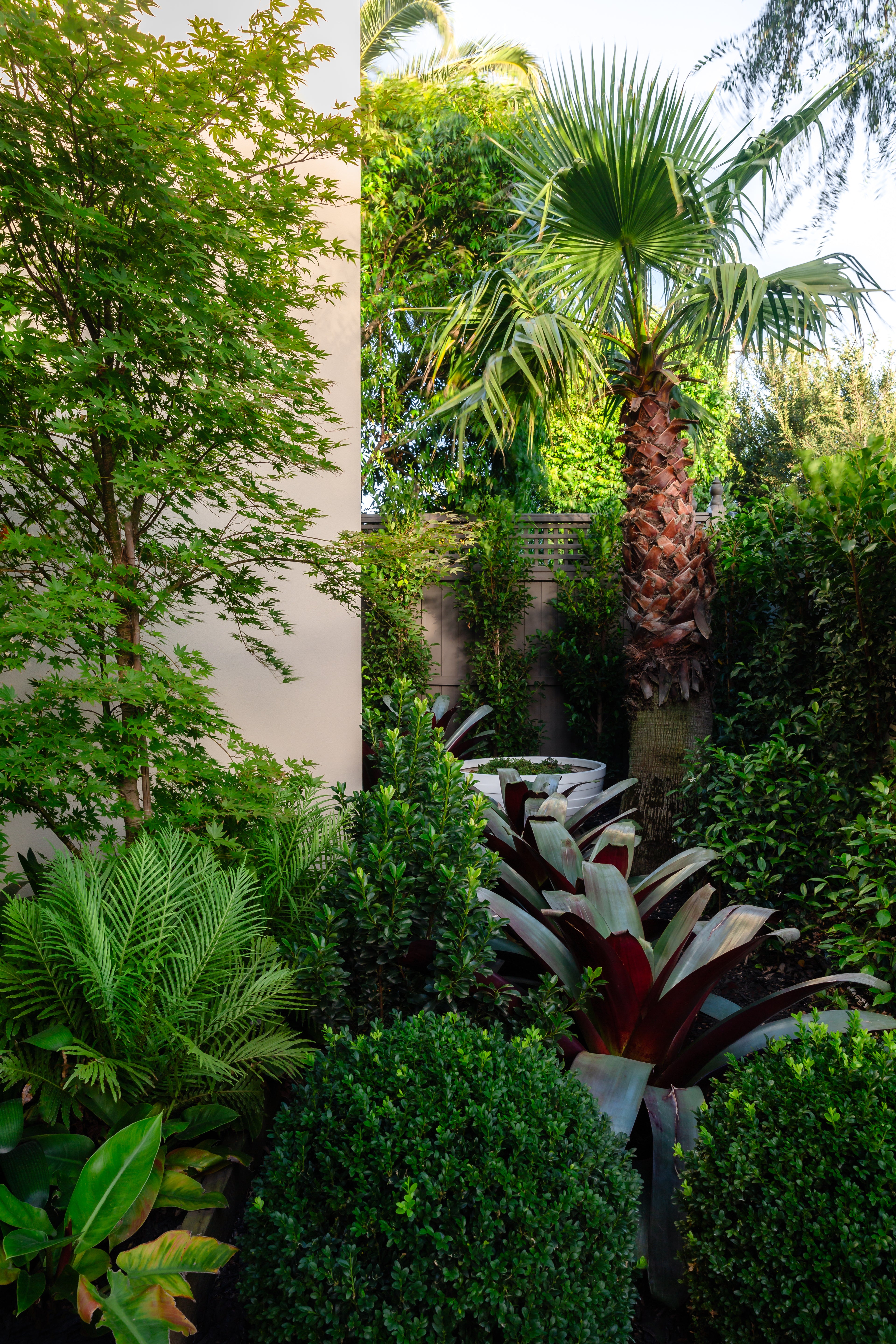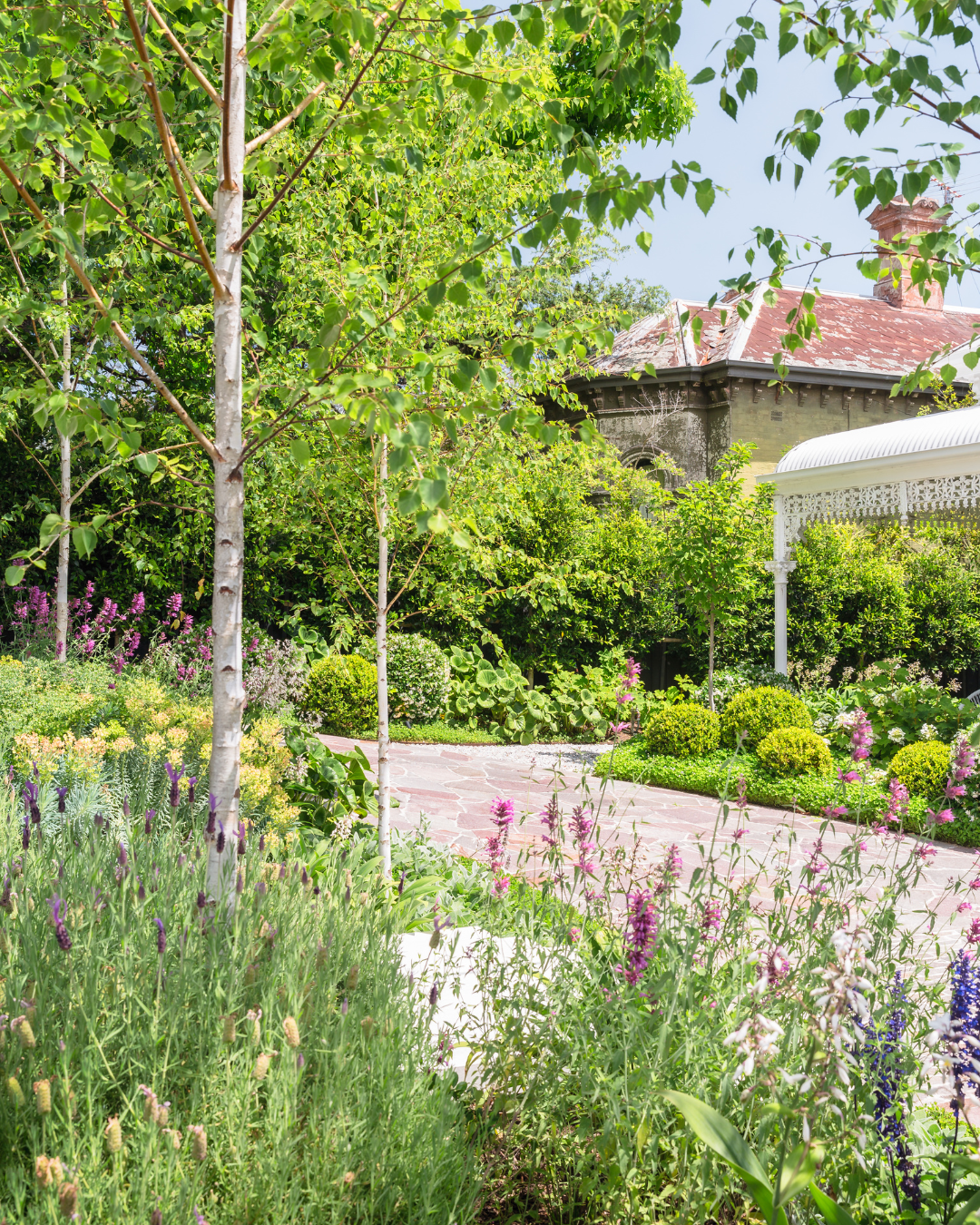Australia's climate is as diverse as its landscapes, presenting unique challenges for gardeners. From scorching heatwaves to heavy rains and drought, selecting the right trees ensures your garden thrives despite unpredictable weather. By carefully choosing resilient species, you can create a garden that survives and flourishes in these extreme conditions. Below, we explore three trees perfectly suited to Australia's climate: Banksia integrifolia, Corymbia maculata, and Ficus Hillii. Each species has unique qualities that make them ideal for gardens seeking efficiency, beauty, and durability.
Banksia integrifolia (Coast Banksia)
Banksia integrifolia, commonly known as Coast Banksia, is a true Australian native that offers resilience and beauty to any high-end garden. This evergreen tree thrives in coastal regions but is also highly adaptable to various environments, including areas prone to dry spells or sandy soils. Its ability to withstand salt spray and coastal winds makes it a favorite among those living near the ocean. However, its strength lies in its ability to handle the elements and the distinctive visual appeal it brings year-round. The tree features pale yellow cylindrical flowers that bloom profusely, attracting birds and insects, making it an essential feature for a vibrant garden.
Key Facts:
- Mature Height: 10-25 meters
- Mature Width: 4-8 meters
- Best Uses: Feature tree, screening tree, windbreak
- Leaf Appearance: Dark green with silver undersides, elongated
- Rate of Growth: Moderate
- Tolerates: Drought, salt spray, sandy soils, windy conditions
Why It's Perfect to Add to Your Garden
For those seeking a low-maintenance tree that brings structure and wildlife to a garden, Banksia integrifolia is an excellent choice. Its moderate growth rate ensures it won’t overwhelm your space, and its ability to withstand harsh conditions—whether coastal winds or dry inland climates—makes it incredibly versatile. This tree adds visual interest without demanding extensive care, and it is ideal for those who appreciate the beauty of nature but want to maintain an efficient and low-effort garden.
Corymbia maculata (Spotted Gum)
The Corymbia maculata, or Spotted Gum, is another remarkable tree choice for gardens aiming to withstand the extremes of Australia's weather. Known for its striking, smooth bark that sheds to reveal a patchwork of white, grey, and cream, the Spotted Gum is as resilient as it is attractive. It thrives in various climates, making it a perfect choice for urban landscapes and sprawling estates. Its robust structure allows it to endure strong winds, droughts, and even fire-prone regions, proving that elegance and strength can go hand in hand.
Key Facts:
- Mature Height: 20-45 meters
- Mature Width: 6-10 meters
- Best Uses: Feature tree, shade tree, windbreak
- Leaf Appearance: Glossy, dark green, lance-shaped
- Rate of Growth: Fast
- Tolerates: Drought, wind, poor soil conditions
Why It's Perfect to Add to Your Garden
Corymbia maculata offers the perfect balance of beauty and durability for high-end gardens. Its fast growth and ability to tolerate various challenging conditions make it an excellent investment for those who want immediate impact. Whether you’re looking to create shade, a natural windbreak, or simply enjoy the visual appeal of its multi-colored bark, this tree is a brilliant addition to any luxury garden. Its adaptability means it will thrive in various environments, from coastal regions to drought-prone inland areas.
Ficus Hillii (Hill’s Weeping Fig)
For gardeners seeking an evergreen tree that provides dense foliage and acts as a natural privacy screen, Ficus Hillii (Hill’s Weeping Fig) is a top-tier choice. Known for its lush, deep-green canopy, this tree can grow into a magnificent feature in any high-end garden. Its dense leaves offer year-round greenery, ensuring your garden remains vibrant even during Australia’s harshest weather conditions. While Ficus Hillii thrives in warm climates, it also demonstrates impressive tolerance to drought once established, making it a versatile and low-maintenance option for discerning homeowners.
Key Facts:
- Mature Height: 10-15 meters
- Mature Width: 6-8 meters
- Best Uses: Screening tree, feature tree, privacy hedge
- Leaf Appearance: Dark green, glossy, oval-shaped
- Rate of Growth: Fast
- Tolerates: Drought, poor soil, occasional frost
Why It's Perfect to Add to Your Garden
Ficus Hillii is ideal for those who value privacy and luxury. Its fast growth and dense canopy make it an exceptional screening tree, offering beauty and functionality. The tree’s ability to withstand drought conditions means it requires little water once established, making it a low-maintenance yet highly effective addition to any garden. Whether you're creating a secluded retreat or looking to enhance the natural boundaries of your property, this tree’s lush greenery and rapid growth will not disappoint.
Tree Selection Tips for High-End Gardens
When selecting trees for a luxury garden, especially in Australia’s unpredictable climate, it’s essential to prioritize species that can endure harsh conditions while offering aesthetic appeal. Here are a few tips to ensure you choose the right trees for your garden:
- Climate Adaptability: Choose species that are proven to thrive in Australia’s diverse and extreme climate conditions. Look for trees like Banksia integrifolia, Corymbia maculata, and Ficus Hillii, known for their resilience to drought, wind, and poor soils.
- Maintenance: Opt for low-maintenance trees if you want to enjoy the beauty of your garden without the hassle of constant care. Trees like Ficus Hillii offer year-round greenery without demanding excessive water or pruning.
- Growth Rate: Consider the growth rate of the trees you choose. If you’re looking for immediate impact, trees with a fast growth rate, such as Corymbia maculata, will quickly provide shade, structure, and privacy.
- Functionality: Determine the purpose of each tree in your garden. Are you planting for shade, privacy, or to create a feature? Species like Banksia integrifolia are ideal for windbreaks, while Ficus Hillii excels as a screening tree.
FAQs
-
How can I ensure the trees I plant will survive extreme weather conditions?
It is essential to select native species or trees that thrive in harsh climates, like Banksia integrifolia, Corymbia maculata, and Ficus Hillii. Once established, these species are highly resilient to drought and wind. -
What are the best low-maintenance trees for a luxury garden?
Trees like Ficus Hillii and Banksia integrifolia are excellent low-maintenance options. They require minimal pruning and are drought-tolerant once established. -
Can these trees grow in poor soil conditions?
Yes, Corymbia maculata and Banksia integrifolia are both well-suited to poor soils. Their adaptability makes them perfect for various environments, from coastal regions to urban landscapes.
Conclusion
With the right tree selections, creating a garden that can withstand Australia’s climate extremes is possible and highly rewarding. Banksia integrifolia, Corymbia maculata, and Ficus Hillii offer resilience and aesthetic appeal, ensuring your garden remains a vibrant sanctuary regardless of weather conditions. By incorporating these species into your landscape, you can enjoy a beautiful, functional, and low-maintenance garden that will stand the test of time.













